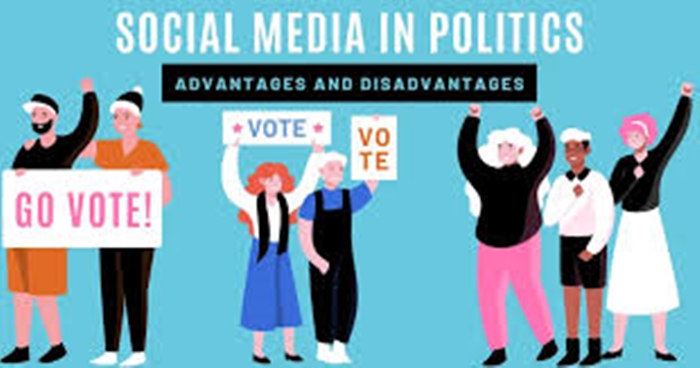In this article, we discussed the role of social media in politics, the meaning of social media. We also talked about politics.
Definition
Social media is a collective term for websites and applications that focus on communication, community-based input, interaction, content-sharing and collaboration. People use social media to stay in touch and interact with friends, family and various communities.
“politics” refers to the way that countries are governed, and to the ways that governments make rules and laws to manage the human society properly. Politics can also be seen in other groups, such as in companies, clubs, schools, and churches.
Social media use in politics refers to the use of online social media platforms in political processes and activities. Political processes and activities include all activities that pertain to the governance of a country or area.
The role of social media in politics
Mobilizing Grassroots Movements
Social media platforms have played a vital role in mobilizing grassroots movements in Nigeria. Platforms like Twitter and Facebook have made it easier for citizens to organize and coordinate protests and other forms of political action. This was evident during the #EndSARS protests, where Online networking platforms were used to organize demonstrations and share information about police brutality and other social issues.
Increasing Political Engagement
Social media has also increased political engagement among Nigerians. With the rise of social media, more Nigerians are paying attention to political issues and engaging with their elected officials. Digital social channels have made it easier for Nigerians to share their opinions and views on political issues, making their voices heard in the political discourse.
Encouraging Citizen Journalism
Social media has given rise to citizen journalism in Nigeria. With the decline of traditional media outlets, citizens have taken it upon themselves to report news and provide alternative perceptions on social issues. These citizen journalists were given a platform for sharing their reports and meeting an expanded audience via platforms such as Twitter and Instagram.
Amplifying Voices of Marginalized Groups
Social media has also been a powerful tool for increased the voices of downgraded groups in Nigeria. Platforms like Twitter and Instagram have provided a space for women, LGBTQ+ individuals, and other marginalized groups to share their experiences and advocate for their rights. This has helped to create a more inclusive and diverse public discourse in Nigeria.
Fostering Accountability
Social media has played a critical role in fostering accountability among politicians and public officials in Nigeria. With Internet social platforms, citizens can hold their elected officials accountable for their actions and decisions. This medium has also given activists an opportunity to reveal government corruption and other wrongdoing, promoting a more open and responsible political system.
Providing a Platform for Civic Education
Social media platforms have become a critical tool for civic education in Nigeria. They provide an opportunity for citizens to learn about the political process, the functions of government, and the role of citizens in holding the government accountable. Many advocacy groups and NGOs use Digital social channels
to share information about political issues and to educate citizens on their rights and responsibilities.
Facilitating Political Campaigns
In Nigeria, social media is increasing in popularity as a tool for political campaigns. Online networking platforms are used by political parties and candidates to engage voters and reach larger audiences. They interact with voters directly through social media expressing their agendas and campaign pledges.
Encouraging Social Activism
Social media has encouraged social activism in Nigeria. Platforms like Twitter and Instagram have provided a platform for Nigerians to advocate for social justice issues and human rights. Social media activism has helped to raise awareness about issues such as police brutality, gender-based violence, and corruption, contributing to a more informed and engaged public discourse.
Creating a Platform for Public Feedback
Nigerians can now provide their elected politicians and government feedback via social media. Facebook and Twitter have made it simpler for citizens to interact with their representatives and offer feedback on government decisions and policies.
Promoting Transparency
Social media has helped promote transparency in public and government organizations. Investigative journalists and whistleblowers now rely heavily on Online social communities to reveal corruption and other wrongdoing in government. Governmental organizations may now engage directly with individuals through Online networking platforms, which encourages openness and accountability in politics.
Moreover, social media has also provided a platform for another news sources and voices. Many Nigerians are skeptical of normal media outlets that they observe as unfair or controlled by the government. It has given rise to citizen journalists and bloggers who provide alternative perspectives on issues that are not covered by traditional media outlets. This has helped to diversify the sources of information available to Nigerians and contributed to a more robust and nuanced public discourse.
In conclusion, social media significantly influenced Nigerian political discourse and public opinion. It has enabled people to participate in politics and hold their government responsible, however, it is also used to distribute propaganda and false information. Nigerians must continue to use social media responsibly and make efforts to keep it from becoming a substance for conflict and division rather than a vehicle for positive transformation.


